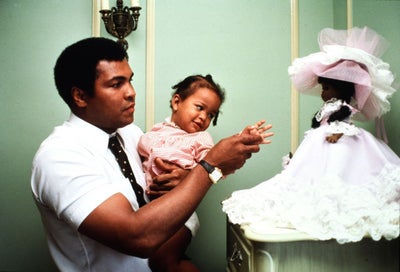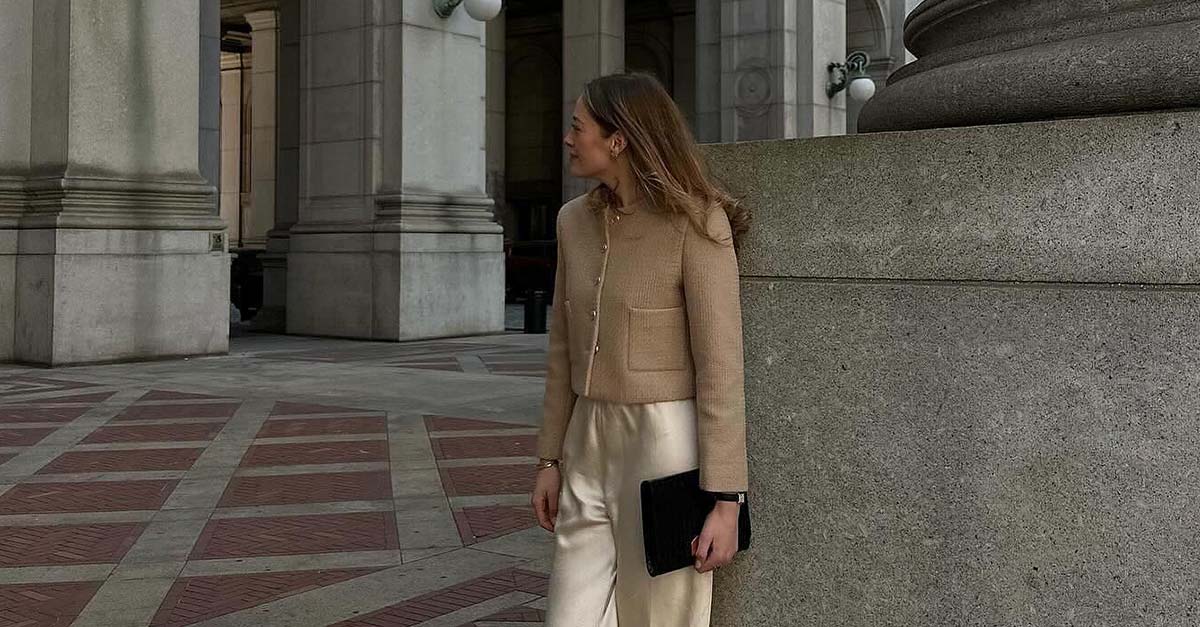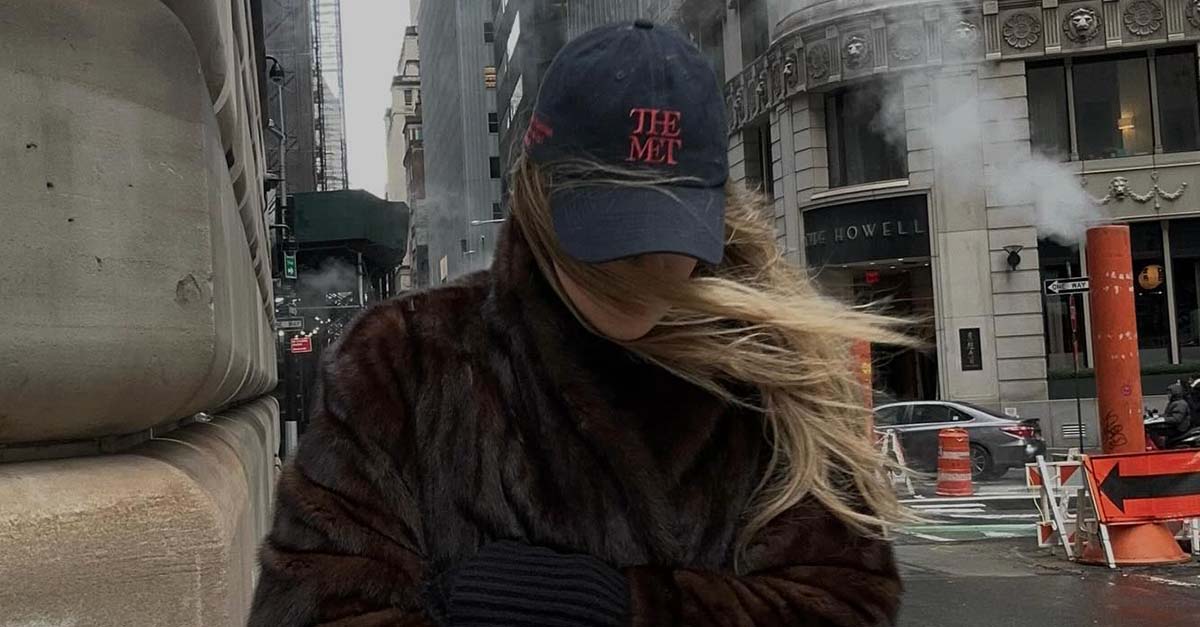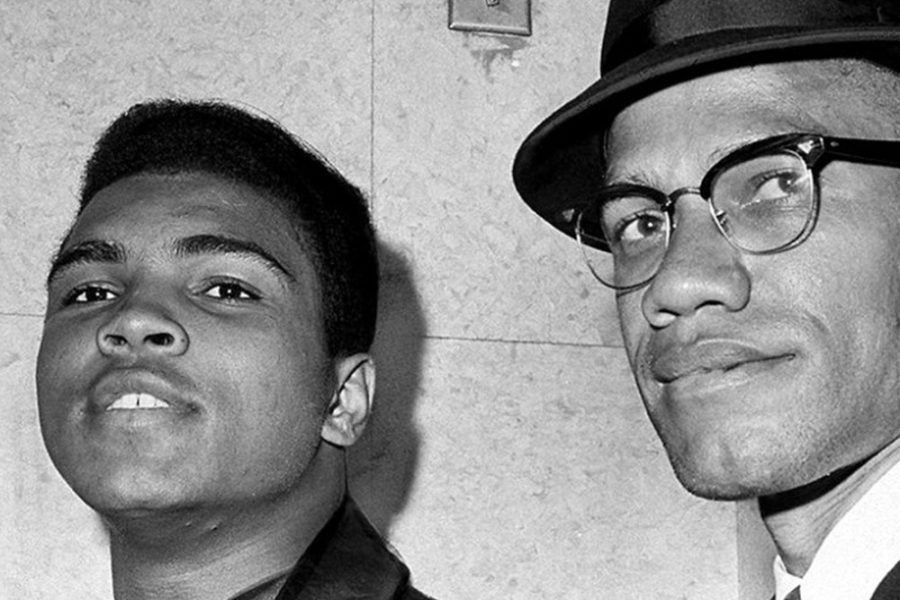
In 1942, a legend was born: Muhammad Ali, the literal GOAT. [Fun fact: Lonnie Ali, Muhammad Ali’s wife, incorporated Greatest of All Time, Inc. (G.O.A.T. Inc.) to license her husband’s intellectual properties].
But not only did Ali break records in the boxing ring—being the first boxer to win three world heavyweight title championship bouts— he also was an advocate for his people, standing up for social justice and espousing powerful messages of Black pride throughout his lifetime.
To commemorate what would have been Ali’s eighty-first birthday on Jan. 17, ESSENCE is highlighting 17 moments he fought the great fight outside of the ring.
01
Ali didn’t just fight to win medals or glory
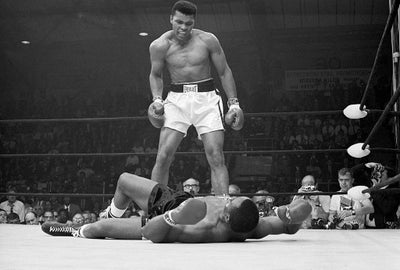
02
Demonstrating his conviction to racial justice and Black pride, he changed his name from Cassius Clay to Muhammad Ali
“Cassius Clay is a slave name. I didn’t choose it and I don’t want it. I am Muhammad Ali, a free name – it means beloved of God, and I insist people use it when people speak to me.”
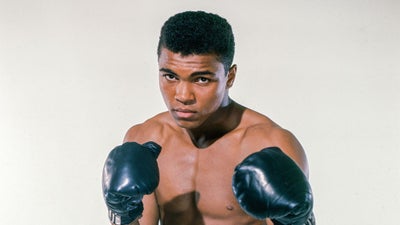
03
The legendary boxer took an early stance against the Vietnam War after he was drafted in 1967
“Why should they ask me to put on a uniform and go ten thousand miles from home and drop bombs and bullets on brown people in Vietnam while so-called Negro people in Louisville are treated like dogs and denied simple human rights… But I have said it once and I will say it again. The real enemy of my people is right here. I will not disgrace my religion, my people or myself by becoming a tool to enslave those who are fighting for their own justice, freedom and equality.”
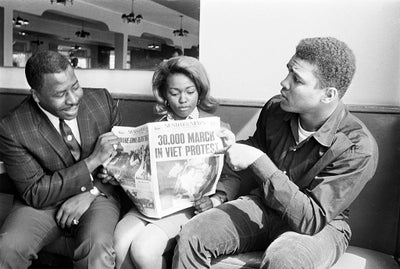
04
A trailblazer ahead of his time, Ali incorporated racial economic mobility into his platform when he formed Main Bout Inc
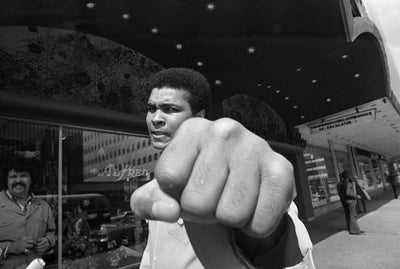
05
A powerful orator, Ali was outspoken about how Black is beautiful
“The white tries to show the white as all-good. All the good cowboys ride wide horses. Angel food cake is white and devil’s food cake is chocolate… Black dirt is the best dirt. Brown sugar causes fewer cavities, and the blacker the berry, the sweeter the juice.”
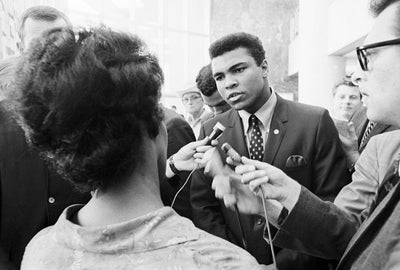
06
Ali’s refusal to be drafted prompted the Cleveland Summit meeting of prominent Black athletes
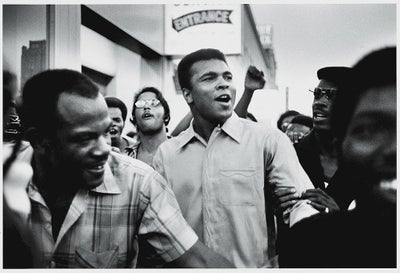
07
Ali spoke with Black youth about their frustrations about the lack of progress during the Civil Rights era
During the summer of 1967, many anticipated a riot sweeping the streets of Chicago after the West Side uprising the year before; but this crisis was averted after “Ali appeared at a secret meeting in Chicago’s East Garfield Park neighborhood…urg[ing] reconciliation among Black youths in the neighborhood, an end to violence, and restraint in the upcoming summer.”
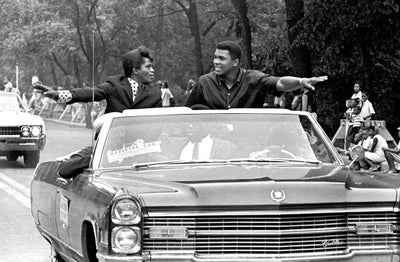
08
He spoke at the Poor Peoples’ March on Washington after Dr. King’s assassination
During the campaign’s stopover in Louisville, KY, Ali engaged the audience around the topic of economic justice.
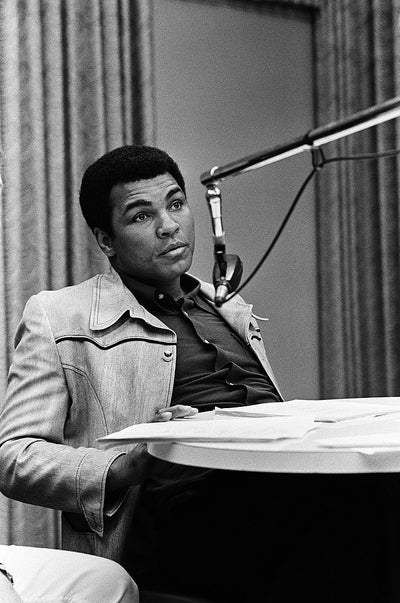
09
Ali constantly challenged the status quo
He’d ask many probing rhetorical questions during interviews and speeches alike, “about why Jesus is pictured as white, why Tarzan, King of the Jungle in Africa, is white, and Miss America was always white.”
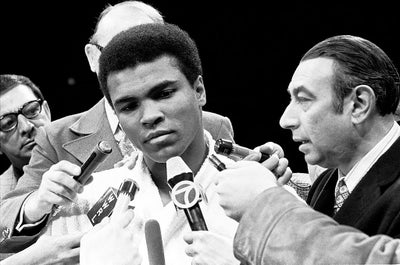
10
He touted the glory of Africa at a time when many were hesitant to do so
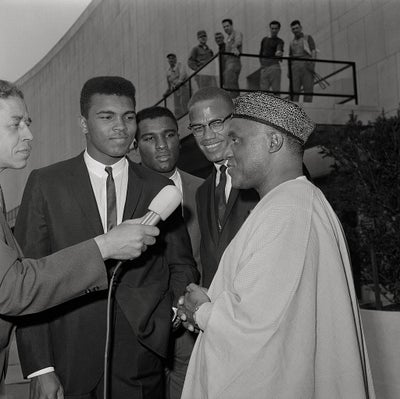
11
Made uplifting Blackness synonymous with his trailblazing path
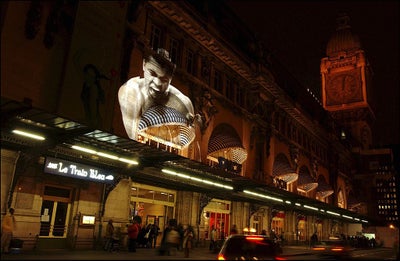
12
Ali helped free an Iranian journalist
After spending 545 days in an Iranian prison, Washington Post reporter Jason Rezaian, was freed in part due to the efforts of Ali, who released a statement during Rezaian’s imprisonment which helped to changed the tide— “I am sorry that I cannot be physically present to lend my support in person but I pray my words will provide relief to the efforts to secure the release of Jason Rezaian. Insha’Allah. It is my great hope that the government and judiciary of Iran will end the prolonged detention of journalist Jason Rezaian.”
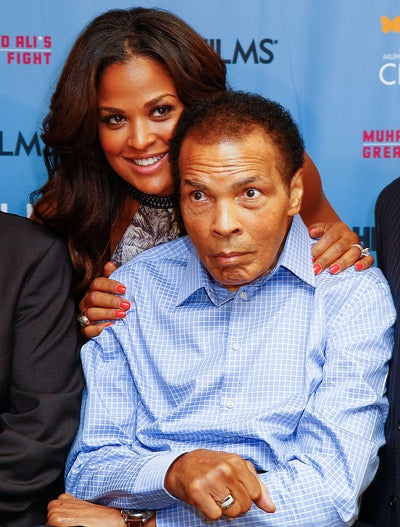
13
Stood up against Trump’s Muslim ban
The fight for religious freedom came to the forefront during former President Trump’s Muslim ban, and Ali was a vociferous opponent, standing up against injustice stating, “We as Muslims have to stand up to those who use Islam to advance their own personal agenda…They have alienated many from learning about Islam. True Muslims know or should know that it goes against our religion to try and force Islam on anybody.”
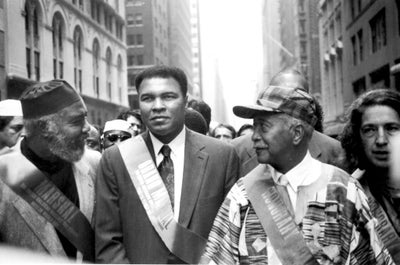
14
Pledged his respect and assistance to Native Americans
The Longest Walk was held to bring the issue of Native people’s rights to the forefront as well as protest a slew of anti-Indian bills that would threaten treaty rights, which had been introduced in Congress. Ali joined in as they marched into the capitol city.
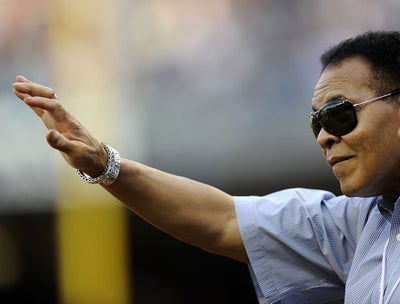
15
Continuously fought for the underdog
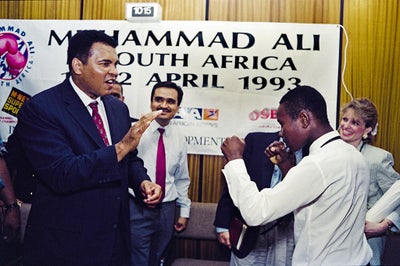
16
A philanthropist to the core
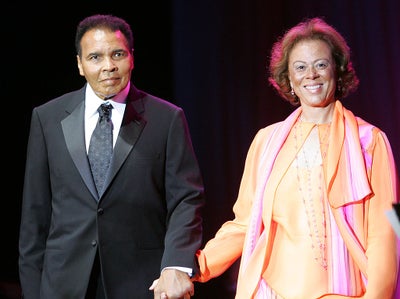
17
Helping children was one of his key goals
